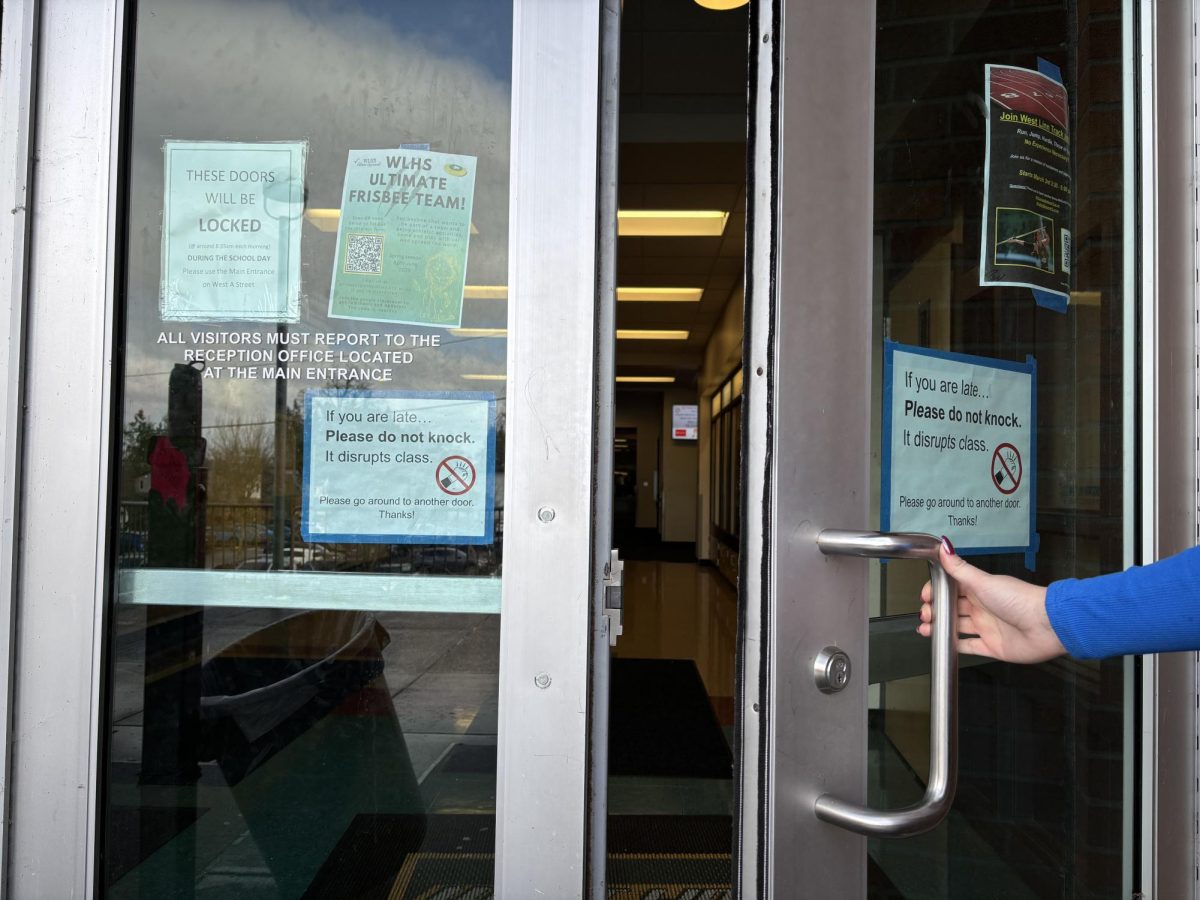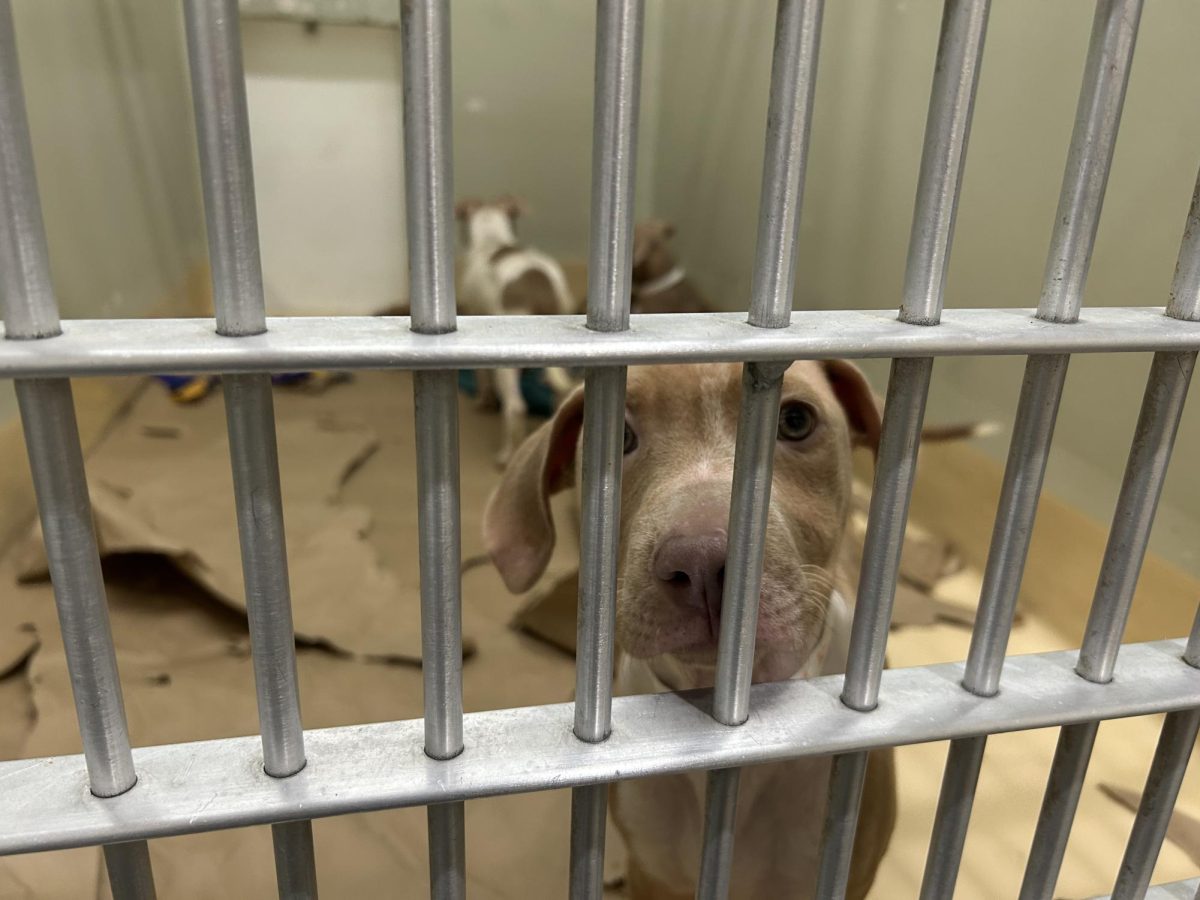Some have been criticizing musical artist Taylor Swift’s most recent legal action involving her private jet. In December of 2023, Swift’s legal team sent a cease and desist letter to Jack Sweeney, a Floridian college student, over concerns about a celebrity private jet tracking account that raises awareness about the climate impact of celebrities.
Swift has been ongoingly criticized, especially by those on social media, for her carbon footprint. The singer’s net worth is estimated to be over a billion dollars, according to Business Insider. Her ongoing Eras Tour is contributing to this, as it is currently the number one music tour worldwide and has amassed over a billion dollars in revenue, according to Associated Press News.
Sweeney gained notoriety in 2022 after his X accountwas banned after setting up a bot using public data to track the private jet flights of the company’s owner, Elon Musk. Sweeny now runs the account @ElonJetNextDay, tracking Musk’s private jet flights with a 24 hour delay on other social media sites, including Threads. He has private jet tracking accounts for several other celebrities as well, including Kim Kardashian, Mark Zuckerberg, Donald Trump, and others.
All of these accounts use publicly available airspace data. These accounts are created to share information on private jet use to consumers, but the same information that these accounts share can be accessed by nearly anyone. All information is legally obtained.
@SwiftJetNextDay on X is the account run by Sweeney that tracks Swift’s private jet usage. It does not show where Swift is, who is on her jet, or where she flys in real-time. The account posts on a 24 hour delay, from were the jet started the flight to where it landed with an estimation of the flight time. Opinions on the tracking account differ. Some, like Noa Richardson, junior, side more with Sweeney.
“Coming from someone who often uses the app ‘Flight Radar 24’ frequently, it’s not that hard to obtain the tail number of her jet and track it,” Richardson said. “[Sweeney] just happens to make it easier for people to access already available information. Swift lives in an insular bubble, and though privacy should be respected, she must be bound to accept that she is a public figure and that her actions, such as taking a gratuitous amount of flights does have an impact on emissions and on air traffic.”
Swift has been named Yard’s, a coalition of sustainability driven businesses, most polluting celebrity of 2022 for her private jet usage. Yard’s findings include public flight records show that Swift traveled a total of 22,923 minutes in the air, having a total of 8,293.54 tons of carbon. This was in 2022, a year she was not touring. To put that amount in perspective, the average US citizen emits 16 tons of carbon a year, according to the UCAR center for Science and Technology
Swift is not the only individual to have a high carbon footprint. According to The Guardian, the wealthiest top 1% of wealthiest individuals account for more carbon emissions than the poorest 66% of people worldwide.
Swift purchased double the carbon offsets for her Eras Tour. Carbon credits, or carbon offsets, are a way that companies and celebrities can offset their carbon footprint. According to Carbon Offsets, carbon credits and carbon offsets are two different terms that are often used interchangeably. Carbon credits can be bought by a company from a government with a formal carbon offset program, or another company with excess carbon credits, which grants them permission to produce one ton of carbon per credit.
Carbon offsets are purchased from a company that sells them. A company that sells offsets can create a carbon removal program, usually based around conservation of some kind such as reforestation, or a carbon reduction program, such as investing or building infrastructure for renewable energy.
The U.S. federal government does not have a formal carbon credit program, however the state of California does. The general idea is that if a company emits a certain amount of carbon in the air, then they can buy carbon offsets from a company that will then take that amount of carbon out of the air.
While carbon offsets or credits are regulated by the United Nations Framework Convention on Climate Change (UNFCCC), some have called into question the legitimacy of carbon offset programs. A 2019 article by Propublica about an investigation into carbon offsets programs, found that many overestimated how much carbon their programs offset.
Others have defended Swift. Pointing out that she is not the only celebrity with a high carbon footprint. Some articles such as one from Cultura Colectiva have noted that Swift did not appear in My Climate Orgs Carbon Tracker. While names Such as Beyonce, Bill Gates, and Travis Kelce did.
Many celebrities have a higher carbon footprint than the average person. There are differing opinions on the issue of what kind of standards a public figure should be held too regarding the issue of carbon footprints and how those standards should be enforced.


![Reaching out. Christopher Lesh, student at Central Catholic High School, serves ice cream during the event on March 2, 2025, at the Portland waterfront. Central Catholic was just one of the schools that sent student volunteers out to cook, prepare, dish, and serve food. Interact club’s co-president Rachel Gerber, junior, plated the food during the event. “I like how direct the contact is,” Gerber said. “You’re there [and] you’re just doing something good. It’s simple, it’s easy, you can feel good about it.”](https://wlhsnow.com/wp-content/uploads/2025/03/interact-1-edited-1200x744.jpg)





























































![At the bottom of the third inning, the Lions are still scoreless. Rowe stands at home plate, preparing to bat, while Vandenbrink stands off to the side as the next batter up. Despite having the bases loaded, the team was unable to score any runs. “It’s just the beginning of the season. We’re just going to be playing out best by June, [and] that’s where champions are,” Rowe said.](https://wlhsnow.com/wp-content/uploads/2024/03/IMG_3077-1200x900.jpg)


















































